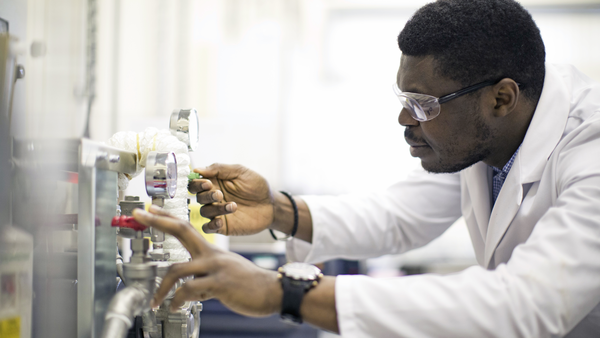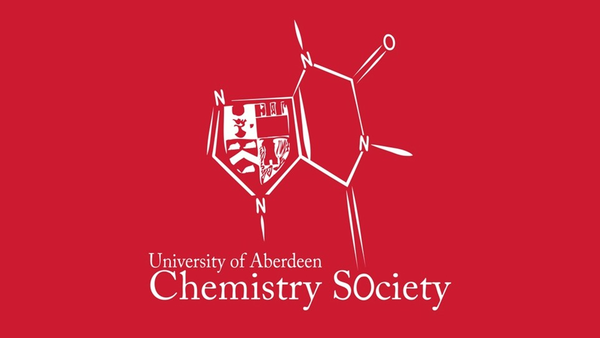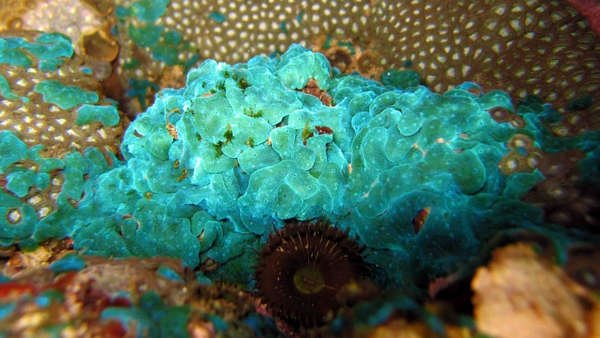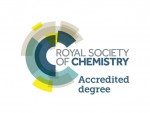
Introduction
The MChem degree at the University of Aberdeen is a 5 year programme accredited by the Royal Society of Chemistry (RSC) and leading to the professional qualification of Chartered Chemist.
- Ranked 7th in the UK for Chemistry, Times and Sunday Times Good University Guide 2022.
- Ranked 1st in Scotland for Overall Student Satisfaction, National Student Survey 2021.
The brand-new Science Teaching Hub provides the latest high-tech teaching labs and equipment to support your learning and to help you develop industry-standard skills and techniques to launch your chemistry career.
Study Information
At a Glance
- Learning Mode
- On Campus Learning
- Degree Qualification
- MChem
- Duration
- 60 months
- Study Mode
- Full Time
- Start Month
- September
- UCAS Code
- F105
Chemistry is a core science that is not only the very essence of life, but is also concerned with the quality of life and its continuous improvement. It is often regarded as the central science, and a degree in chemistry provides a student with many key skills which can be used in many areas not necessarily restricted to the discipline.
Students who study chemistry at university go on to work in a wide range of highly rewarding careers, tackling the problems we face today in areas such as drug discovery, environmental protection, forensics, food and agriculture as well as academic careers in teaching or cutting-edge research.
Chemistry is also central to the transition to clean and sustainable energy and this programme will also provide you with the foundation for a career in developing battery and fuel cell technology, carbon capture technologies and also the hydrogen economy.
The BSc (Honours) degree is the traditional route to a chemistry qualification. It involves four years of full time study (although direct entry into second year is possible for well qualified applicants, and all four years may be undertaken part time).
This degree was instigated about 10 years ago at the request of employers and the RSC to provide graduates with a wider range of skills (including transferable skills and more research experience) than those in the BSc (Hons).
A feature of all of these programmes is a final year 4-month research project placement in the area of specialisation, usually at an overseas university, research institute or industrial laboratory. The MChem is seen as the flagship degree, and entry into the final two years is dependent on achieving at least an upper second class Honours level of performance in third year.
Chemistry graduates are very employable because a degree in chemistry opens many opportunities in areas such as drug development, environmental protection, food chemistry, petroleum chemistry, forensic science and materials development.
What You'll Study
- Year 1
-
You will study introductory courses in Chemistry, alongside other courses which need not necessarily be science related.
Compulsory Courses
- Getting Started at the University of Aberdeen (PD1002)
-
This course, which is prescribed for level 1 undergraduate students (and articulating students who are in their first year at the University), is studied entirely online, takes approximately 5-6 hours to complete and can be taken in one sitting, or spread across a number of weeks.
Topics include orientation overview, equality and diversity, health, safety and cyber security and how to make the most of your time at university in relation to careers and employability.
Successful completion of this course will be recorded on your Enhanced Transcript as ‘Achieved’.
- Chemistry for the Physical Sciences 1 (CM1021)
-
15 Credit Points
The fundamentals of chemistry are important across the physical sciences and engineering. Starting with atomic structure and the periodic table, this course moves on to chemical bonding theory, building to the structure of organic molecules. Moving from the molecular level, acid–base theories, phase equilibria and solution chemistry are covered. The properties of ideal and non-ideal gases are then discussed and the energetics of chemical processes completes the course. Examples of quantitative calculations support the course materials.
Laboratory classes introduce important practical techniques, with experiments that support and complement the taught material.
- Elements of Chemistry 1 (CM1022)
-
15 Credit Points
This course will inspire students to investigate the scope and power of chemistry and to develop the necessary skills for success in undergraduate Chemistry and beyond. Students will develop an appreciation of the essentially limitless scope of chemistry in understanding and controlling the material world. Students will also become more confident learners:in particular developing competences in literacy and numeracy, communication, data collection, analysis and interpretation, discussion and presentation of complex ideas and laboratory methods.
By getting to know other students studying chemistry and finding out about lecturers’ research interests, students will feel more part of the Chemistry team.
- Chemistry for the Physical Sciences 2 (CM1513)
-
15 Credit Points
Chemistry plays a central role in physical science and engineering, not only because of the insights it gives on the composition, properties and reactivity of matter but also because of its wide-ranging applications. This course seeks to consolidate some of the important fundamentals of chemistry that underlie many topics and principles across the physical sciences and engineering, bringing together theories of molecular structure, organic reaction mechanisms, the driving forces behind chemical reactions, and methods of chemical analysis and structure determination.
Laboratory classes complement the lectures by consolidating learning and developing problem-solving and hands-on practical skills.
- Elements of Chemistry 2 (CM1522)
-
15 Credit Points
This course aims to encourage students to integrate their knowledge in chemistry and apply basic knowledge to more complex but widely applicable topics in chemistry and to further develop the skills for success in undergraduate Chemistry and beyond.
Students will develop an appreciation of the interconnected nature of the traditional branches of chemistry thus enhancing their confidence in using their basic chemistry knowledge. Lectures, workshops and directed reading will introduce and discuss a range of topics including some historical background and present day theories and applications of fundamental topics in Chemistry.
Optional Courses
Select a further 60 credit points from courses of choice.
NOTE: For students who do not hold a pass in mathematics at Higher, A-level, or equivalent, they may wish to consider Mathematics for Science (MA1515).
- Mathematics for Sciences (MA1515)
-
15 Credit Points
The course is aimed at a general science audience and it focuses on providing the students with the working knowledge of a good set of mathematical skills needed in all science subjects.
- Year 2
-
Compulsory Courses
- Introductions to Materials (CM2012)
-
15 Credit Points
This course provides a grounding in basic materials science. There will be five areas covered, with an emphasis on directed learning. These areas will be, for example: Nanomaterials, Electronic materials, Functional Polymers, Liquid Crystals, Energy Materials. The impact of materials science on everyday life will be considered and explored throughout the course, using these general headings to investigate both the fundamentals of materials and their development into useful and functional products. Each of these areas will cover a two week period and be introduced and facilitated by one of the course team. In course assessments will be on topics of interest under these broad headings, often covering topical concerns, examples being materials for energy and body implant materials. Thus wider issues, including ethics & politics, are drawn into the discussion.
- Chemical Kinetics and Thermodynamics (CM2015)
-
15 Credit Points
This course covers key concepts in physical chemistry which underpin our understanding and ability to control chemical and biological processes. The principal points include thermodynamics (enthalpy, entropy and free energies), chemical kinetics (zero, 1st and 2nd order reactions, rate laws and half-lives and the relationship of rate laws to reaction mechanisms), and basic principles of electrochemistry (redox chemistry and the Nernst equation). A strong emphasis on calculations helps students get to grips with the course material and develops numeracy skills. Laboratory experiments support and complement the taught material.
- Analytical Chemistry and Spectroscopy (CM2016)
-
15 Credit Points
In this course you will learn how to determine trace element patterns or the presence of a compound by using modern analytical methods. The course covers the underlying theory for analysis and identification using structure determination by spectroscopic methods like UV, IR, NMR, mass spectrometry and chromatographic separations. Atomic spectrometry is covered for trace metal determination. In practical classes, students get hands-on training with modern analytical instrumentation.
- Organic & Biological Chemistry (CM2514)
-
15 Credit Points
Modern organic and biological chemistry comprise the chemistry of carbon-containing compounds, which are natural (e.g. foods, fuel, perfumes) as well as synthetic (e.g. soaps, textile fabrics, pharmaceuticals). This course investigates some key areas in organic chemistry: shape, conformation, stereochemistry, and chemical properties of organic and biological compounds. Reactions and reactivity of aliphatic derivatives, olefins and aromatic compounds will be considered with particular reference to spatial and electronic effects. The experiments performed in the lab will help students understand key organic concepts and develop their synthetic/analytical skills.
- Inorganic Chemistry (CM2519)
-
15 Credit Points
This course investigates some key areas of inorganic chemistry. An introduction to simple crystal structure types is given and important solid state materials such as high temperature superconductors, photocatalysts and zeolites are described. The concept of symmetry is introduced. Redox chemistry is developed in terms of Latimer, Frost and Ellingham diagrams: their applications in modern technology and industry are emphasised, including batteries, fuel cells, corrosion, electrolysis and water purification. The key properties of transition metal complexes - shapes, colours and magnetism are described and analysed in terms of crystal field theory. Laboratory experiments are closely tied to the lecture materials.
Optional Courses
Select a further 60 credit points from courses of choice.
- Year 3
-
Compulsory Courses
- Inorganic and Solid State Chemistry (CM3037)
-
30 Credit Points
This course introduces students to the fascinating properties of inorganic materials through a series of lectures, tutorials and laboratory experiments. An introduction to crystallography and crystal diffraction is given. The students will also learn about solid state synthesis and the properties of important solid state materials such as high temperature superconductors, zeolites and ferroelectric materials. An introduction to the chemistry of transition metals and main group elements will be given.
Students will gain hands on experience in powder X-ray diffraction and will synthesise some of the key materials described within the course during the laboratory practicals.
- Professional Skills for Physics and Chemistry (CM30PS)
-
15 Credit Points
This course will give students opportunities to develop technical and professional skills necessary for success in Honours level Chemistry/Physics and beyond. The course will include working with scientific literature, computer programming and the use of software tools in research and activities to enhance employability. Students will develop an appreciation of the power of state of the art computer programs to assist the user to understand complex data sets. Students will also become more confident in communicating and assessing scientific ideas.
By considering their own skills development, students will feel more able to identify and compete for exciting graduate employment opportunities.
- Organic & Biological Chemistry (CM3534)
-
30 Credit Points
This course introduces important fundamentals of organic chemistry. You will gain a firm grounding in NMR spectroscopy and mass spectrometry which are vital analytical tools to determine if the correct organic molecule has been synthesised. Biological chemistry such as DNA/RNA and genome sequencing will be introduced. Organic synthesis lectures will concentrate on chemistry of the carbonyl group, aromatic synthesis and electrocyclic reactions.
Students will gain expertise in the synthesis of a number of different organic compounds such as dyes and explore important reactions during the laboratory practicals which accompany this course. You will also learn chromatographic techniques and consolidate your structure determination skills.
- Molecular Structure and Reactivity (CM3536)
-
30 Credit Points
Students will be introduced to the fundamentals of spectroscopy and will gain an understanding of the nature of chemical bonding. The thermodynamics and applications of electrochemical systems will be explained, as well as the basic theories describing electrolytes and their electric conductivity. We will show how variables such as pressure and temperature affect reaction rates and how this can lead to a better understanding of reaction mechanisms, in particular, industrially important polymerization reactions. The physical chemistry of interfaces, as well as the fundamentals and applications of gas adsorption on solid surfaces, will also be introduced. The course is structured around lectures, tutorials and laboratory practicals.
- Energy and the Environment (CM3041)
-
15 Credit Points
This course introduces the impact humanity has had on the environment & how chemistry can be used for both medium- & long-term energy solutions. Chemical processes which impact the environment will be described, such as ozone generation & depletion in the atmosphere. Students will be introduced to how carbon capture & storage can be used to reduce carbon emissions from industrial processes & how chemistry can be applied to design next generation solar cells, batteries & hydrogen fuel cells.
- Year 4
-
Compulsory Courses
- Honours Inorganic & Physical Chemistry (CM4037)
-
15 Credit Points
Honours level topics in inorganic and physical chemistry. This course will cover important aspects of physical chemistry such as chemical bonding and polymers, and the structure and properties of inorganic compounds.
- Honours Analytical & Organic Chemistry (CM4038)
-
15 Credit Points
Honours level topics in environmental-analytical and organic chemistry. This course will cover analytical methods related to environmental chemistry, and the organic reactions and structures in synthetic compounds, as well as the use of spectroscopic methods to determine the structure of organic molecules.
- Mchem Group Practical (CM4036)
-
15 Credit Points
The aim of this first half-session course is to provide a combination of research experience and group work via research-focused group activities involving experiment planning, teamwork and the collection, sharing and interpretation of data. The group, in consultation with the supervisors, will develop a project plan where the overall aim and the objectives of the individual students are established. The development of a variety of transferrable skills is an important feature of this module, including working in a team, project planning, the presentation of results, time management, report writing and verbal communication.
- Advanced Honours Chemistry (CM4537)
-
15 Credit Points
The Advanced Chemistry module is composed of a series of high-level lecture courses usually closely related to the research specialities of the lecturers. This gives students opportunities for in-depth study of advanced topics, whilst the variety of inorganic, physical, organic, materials, environmental and analytical chemistry covered in Advanced Chemistry ensures that students have a good breadth of experience in the subject.
- Integrated Chemistry (CM4538)
-
15 Credit Points
This module aims to help students assimilate materials studied at different points during the whole undergraduate Chemistry degree programme. The course consists of a series of lectures and workshops, held in the second half session, covering material studied in the earlier years of the course. The workshops are intended to review fundamental topics and ideas in the context of the more advanced material studied at Honours level. Reflective writing will ask students to look at the ‘big picture’ of chemistry in context and their own chemical identity.
- Mchem Research Project (CM4535)
-
30 Credit Points
The level-4 individual research project for MChem students runs in the second half-session and affords students opportunities to learn modern research techniques and to develop some expertise in the topic of their project. As far as possible, projects are allocated in accordance with student preferences. Every project has a named supervisor and there is considerable scope for students to use their initiative in experimental design and interpretation of results. The development of a variety of transferrable skills is an important feature of this module, including project planning, presentation of results, time management, report writing and verbal communication.
Optional Courses
Select a further 15 credit points from courses of choice in Level 3 and 4.
- Year 5
-
MChem personal project takes 6 months and is usually undertaken at a partner university in Europe, in an industrial laboratory or departmental research group.
Compulsory Courses
- Mchem Chemistry Applications (CM5003)
-
60 Credit Points
The module consists of three main components including lecture courses chosen to reflect a broad range of advanced topics in chemistry and assessed by examination. These courses are complemented by a number of workshops describing advanced research techniques again drawing from examples across the breadth of chemistry and these are continuously assessed. The workshops involve distinguished visiting lecturers. The final component involves a number of workshops focussed on topics such as how to analyse and critique papers drawn from the literature, how to critically assess research proposals and discussions of topical case studies involving matters of research ethics.
- Mchem Research Project (CM5555)
-
60 Credit Points
In the second half of Level 5, students gain research experience in a professional research environment, normally in a laboratory on mainland Europe. These projects extend from January to April and students may obtain additional funding from the Erasmus scheme to cover their extra costs associated with living abroad. Students may undertake their placement further afield, for example in North America or Australia, or within Aberdeen, subject to individual circumstances. Students undertake a comprehensive literature review on the topic of their project during the first half-session. The project placement is at the heart of the MChem and richly enhances employability.
We will endeavour to make all course options available; however, these may be subject to timetabling and other constraints. Please see our InfoHub pages for further information.
How You'll Study
Learning Methods
- Field Trips
- Group Projects
- Individual Projects
- Lab Work
- Lectures
- Research
- Tutorials
Assessment Methods
Students are assessed by any combination of three assessment methods:
- coursework such as essays and reports completed throughout the course;
- practical assessments of the skills and competencies learnt on the course; and
- written examinations at the end of each course.
The exact mix of these methods differs between subject areas, year of study and individual courses.
Honours projects are typically assessed on the basis of a written dissertation.
Why Study Chemistry?
- The brand-new Science Teaching Hub provides the latest high-tech teaching labs and equipment to support your learning and to help you develop industry-standard skills and techniques to launch your chemistry career.
- We are ranked 7th in the UK for Chemistry, Times and Sunday Times Good University Guide 2022 and 1st in Scotland for Overall Student Satisfaction, National Student Survey
- Our teaching is informed by cutting edge research at the forefront of human health, clean energy technology and materials and we have a number of spin-out companies such as TauRx Phamaceuticals, who specialise in Alzheimer's research.
- A feature of our MChem programme is a final year 4 month research project placement in the area of specialisation, usually at a university, research institute or industrial laboratory.
- In the most recent Research Excellence Framework, published in 2014, the report found that Aberdeen had the largest research impact in Scotland, with over 80% of its research rated as world-leading or internationally excellent. Your fourth or fifth-year project will be placed alongside these PhD and post-doctoral scientists, giving you first-hand experience of world-class research work.
- With industry-standard equipment housed in our state-of-the-art teaching facilities, our students are given all the tools they need to immediately enter the workforce, using technology and techniques that will feel immediately familiar once they start their career.
- The University of Aberdeen has a long history of excellence in Chemistry, with two Nobel Prize winners and an academic staff that includes some of the most experienced chemists in the UK.
- We pride ourselves on our sense of community, with students and staff collaborating on real-world research projects. The active student-run Chemistry Society also allows you to develop skills and make connections outside of the classroom.
- Students who study chemistry at university go on to work in a wide range of highly rewarding careers, tackling the problems we face today in areas such as drug discovery, energy, environmental protection, forensics, food and agriculture as well as academic careers in teaching or cutting-edge research. Chemistry graduates also work in sectors such as banking and IT, where their analytical and problem-solving skills are in high demand.
Entry Requirements
Qualifications
The information below is provided as a guide only and does not guarantee entry to the University of Aberdeen.
General Entry Requirements
- 2024 Entry
-
SQA:
Applicants who achieve AAAB or better over S4 and S5 are likely to be made an offer of admission. This may be unconditional or it may be conditional, dependent upon academic profile. Good performance in additional Highers/Advanced Highers may be required.
Highers at AB from Chemistry and another Science / Maths subject required.
A Level:
A minimum of 3 A Levels at ABB.
A levels at AB from two Chemistry and another Science/Math subject required.
International Baccalaureate:
A minimum of 34 points. 6 points at HL from Chemistry and another Science/Maths subject.
Irish Leaving Certificate:
Five subjects at Higher, with 4 at H2 and 1 at H3. H2 from Chemistry and another Science/Maths subject.
- 2025 Entry
-
SQA:
Applicants who achieve AAAB or better over S4 and S5 are likely to be made an offer of admission. This may be unconditional or it may be conditional, dependent upon academic profile. Good performance in additional Highers/Advanced Highers may be required.
Highers at AB from Chemistry and another Science / Maths subject required.
A Level:
A minimum of 3 A Levels at ABB.
A levels at AB from two Chemistry and another Science/Math subject required.
International Baccalaureate:
A minimum of 34 points. 6 points at HL from Chemistry and another Science/Maths subject.
Irish Leaving Certificate:
Five subjects at Higher, with 4 at H2 and 1 at H3. H2 from Chemistry and another Science/Maths subject.
The information displayed in this section shows a shortened summary of our entry requirements. For more information, or for full entry requirements for Sciences degrees, see our detailed entry requirements section.
English Language Requirements
To study for an Undergraduate degree at the University of Aberdeen it is essential that you can speak, understand, read, and write English fluently. The minimum requirements for this degree are as follows:
IELTS Academic:
OVERALL - 6.0 with: Listening - 5.5; Reading - 5.5; Speaking - 5.5; Writing - 6.0
TOEFL iBT:
OVERALL - 78 with: Listening - 17; Reading - 18; Speaking - 20; Writing - 21
PTE Academic:
OVERALL - 59 with: Listening - 59; Reading - 59; Speaking - 59; Writing - 59
Cambridge English B2 First, C1 Advanced or C2 Proficiency:
OVERALL - 169 with: Listening - 162; Reading - 162; Speaking - 162; Writing - 169
Read more about specific English Language requirements here.
International Applicants
Fees and Funding
You will be classified as one of the fee categories below.
| Fee category | Cost |
|---|---|
| RUK | £9,250 |
| Tuition Fees for 2024/25 Academic Year | |
| EU / International students | £24,800 |
| Tuition Fees for 2024/25 Academic Year | |
| Home Students | £1,820 |
| Tuition Fees for 2024/25 Academic Year |
Scholarships and Funding
Students from England, Wales and Northern Ireland, who pay tuition fees may be eligible for specific scholarships allowing them to receive additional funding. These are designed to provide assistance to help students support themselves during their time at Aberdeen.
International Applicants
Further Information about tuition fees and the cost of living in Aberdeen
Additional Fees
- In exceptional circumstances there may be additional fees associated with specialist courses, for example field trips. Any additional fees for a course can be found in our Catalogue of Courses.
- For more information about tuition fees for this programme, including payment plans and our refund policy, please visit our InfoHub Tuition Fees page.
Our Funding Database
View all funding options in our Funding Database.
Careers
A Chemistry degree will prepare you for a career in Chemistry, but it can also be a stepping stone to many other opportunities. Chemistry graduates are very employable due to the breadth of career opportunities in many areas, such as:
- drug development
- environmental protection
- food chemistry
- petroleum chemistry
- forensic science
- materials development
- business
Our chemistry graduates have found employment with a number of top companies, including:
- Baker Hughes
- Enviroco
- Intertek
- Scottish Government
- Severn Trent Water
Find out more about careers in chemistry from the Royal Society of Chemistry - www.rsc.org/careers/future/your-future-chemistry
Career Opportunities
- Corrosion Engineer
- Drilling Fluids Specialist
- Quality Control Chemist
- Research Development Scientist
- Well Integrity Analyst
Accreditation
This degree holds accreditation from
Our Experts
- Director of Undergraduate Teaching
- Dr Peter Henderson
Information About Staff Changes
You will be taught by a range of experts including professors, lecturers, teaching fellows and postgraduate tutors. Staff changes will occur from time to time; please see our InfoHub pages for further information.
Features

Chemistry Student Society
Student-led social and employability events and seminars.

Learn from research active staff
Example - Two Chemistry teams at Aberdeen have developed a revolutionary new method for creating a new class of therapeutic drugs, called macrocycles, which are complex to create and can address a large number of poorly treated conditions.
Find out more
Science Teaching Hub
Our brand-new Science Teaching Hub provides the latest laboratory, instruments and digital technology skills to support your learning and ensure you gain industry-standard experience to launch your chemistry career.
Find out moreDiscover Uni
Discover Uni draws together comparable information in areas students have identified as important in making decisions about what and where to study. You can compare these and other data for different degree programmes in which you are interested.
Get in Touch
Contact Details
- Address
-
Student Recruitment & Admissions
University of Aberdeen
University Office
Regent Walk
Aberdeen
AB24 3FX

